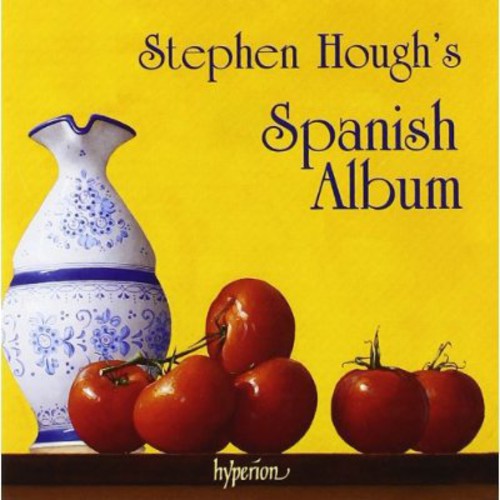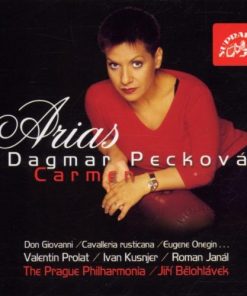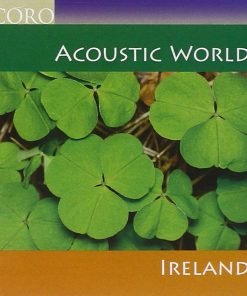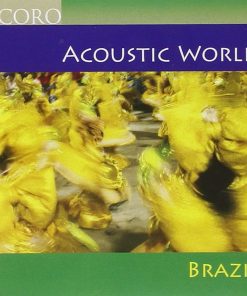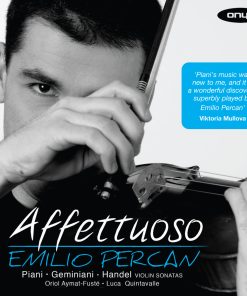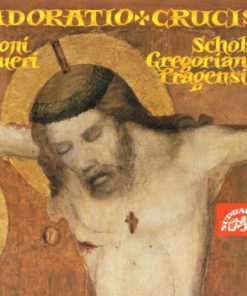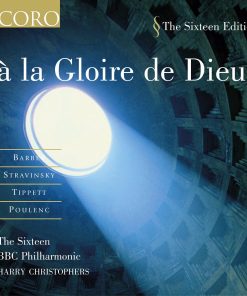Stephen Hough’s Spanish Album – Stephen Hough Hyperion
$ 20,99 $ 12,59

‘I cannot imagine many piano lovers failing to fall for this delectable and all-too-brief collection of impressions, portraits and postcards. If you are not drawn to the imaginative programme of the familiar, the brand new and the entirely unknown, then the elegant, eloquent playing of this master pianist will surely seduce you … we are treated to some of the loveliest pianissimos and and delicate shadings you’ll hear, familiar from Hough’s earlier Piano Albums and similar in his complete empathy with this kind of repertoire … Hough’s own On Falla has an authentic ring that should provide him with a blistering encore for years to come … the piano sound (Andrew Keener and Simon Eadon) is as you would expect from Hyperion’s dream team’ (Gramophone)
‘Hough again has a more intimate stance than many pianists, quietly brilliant in the cross-cutting between musical ideas. Everything is wonderfully fresh and nothing is laboured—it’s a superb and surprising recital’ (BBC Music Magazine)
‘Stephen Hough is among the most intellectual of contemporary pianists; but he’s also among the most playful and tonally poetic keyboard artists … the unashamedly romantic reading of the Soler Sonata that opens the programme sets up the perspective: extremely flexible tempos, all-embracing colours, an exceptional range of articulation, and a subtle observation of polyphony that leads to characterized conversations among the music’s competing voices … Hough’s own On Falla brings the collection to a whimsically brilliant close … an ear-caressing release’ (International Record Review)

1
Sonata in F sharp major Rubio Ed. No 90[5’23]Antonio Soler (1729-1783)
2
Valses poéticos[11’27]Enrique Granados (1867-1916)
3
Evocación (Book 1 No 1 of Iberia)[5’14]Isaac Albéniz (1860-1909)
4
Triana (Book 2 No 3 of Iberia)[5’12]Isaac Albéniz (1860-1909)
5
Pájaro triste (No 5 of Impresiones íntimas)[2’26]Federico Mompou (1893-1987)
6
La barca (No 6 of Impresiones íntimas)[1’25]Federico Mompou (1893-1987)
7
Secreto (No 8 of Impresiones íntimas)[2’48]Federico Mompou (1893-1987)
8
Gitano (No 9 of Impresiones íntimas)[2’53]Federico Mompou (1893-1987)
9
Aragón[4’39]Federico Longas (1893-1968)
10
La soirée dans Grenade (No 2 of Estampes, L108)[5’23]Claude Debussy (1862-1918)
11
La sérénade interrompue: Modérément animé (No 9 of Préludes I, L125)[2’34]Claude Debussy (1862-1918)
12
La Puerta del Vino: Mouvement de Habanera (No 3 of Préludes II, L131)[3’19]Claude Debussy (1862-1918)
13
Pièce en forme de habanera[2’38]Maurice Ravel (1875-1937), arr. Maurice Dumesnil (1886-1974)
14
Tango (No 2 of España ‘6 hojas de album’, Op 165)[2’49]Isaac Albéniz (1860-1909), arr. Leopold Godowsky (1870-1938)
15
Spanisches Ständchen (No 1 of Drei Klavierstücke, Op 63)[4’32]Franz Xaver Scharwenka (1850-1924)
16
Evening in Seville Op 55 No 2[3’34]Walter Niemann (1876-1953)
17
On Falla[4’43]Stephen Hough (b1961)

Stephen Hough’s latest solo album takes us on a colourful tour of Spain and all things Spanish: a kaleidoscope of slants and angles on the soul and character of a once exotic and remote country.
Antonio Soler (whose innumerable sonatas were considered sufficiently outlandish to earn him the sobriquet ‘the devil dressed as a monk’) sets the scene for a sequence of impressionist wonders by Granados, Albéniz and Mompou (a disc of whose pianistic micro-masterpieces—CDA66963—won for Stephen Hough the 1998 Gramophone Instrumental Award), and Federico Longas’s insinuatingly virtuosic charmer Aragón.
Hough then allows outsiders a view into the magical kingdom. Debussy and Ravel peer longingly over the Pyrenees, while Godowsky, Scharwenka, Niemann and finally Hough himself are all in turn unable to resist this richest of cultural experiences.
Stephen Hough’s esoteric recital CDs rapidly acquire something of a cult status. Classic CD wrote of Stephen Hough’s New Piano Album CDA67043: ‘This is a terrific disc. A master pianist reminds us that the piano can delight, surprise and enchant’; while Classic FM Magazine welcomed Stephen Hough’s English Album CDA67267 saying: ‘Hough’s pianism is a constant source of wonder—every chord and phrase perfectly judged’.
Fast Shipping and Professional Packing
Due to our longstanding partnership with UPS FedEx DHL and other leading international carriers, we are able to provide a range of shipping options. Our warehouse staff are highly trained to pack your goods exactly according to the specifications that we supply. Your goods will undergo a thorough examination and will be safely packaged prior to being sent out. Everyday we deliver hundreds of packages to our customers from all over the world. This is an indication of our dedication to being the largest online retailer worldwide. Warehouses and distribution centers can be located in Europe as well as the USA.
Orders with more than 1 item are assigned processing periods for each item.
Before shipment, all ordered products will be thoroughly inspected. Today, most orders will be shipped within 48 hours. The estimated delivery time is between 3-7 days.
Returns
The stock is constantly changing. It's not entirely managed by us since we are involved with multiple parties such as the factory and our storage. The actual stock can fluctuate at any time. Please understand it may happen that your order will be out of stock when the order is placed.
Our policy is valid for 30 days. If you haven't received your product within 30 days, we're not able to issue either a return or exchange.
You are able to return a product if it is unused and in the same condition when you received it. It must also still remain in the original packaging.
Related products
MUSIC CD
MUSIC CD
MUSIC CD
MUSIC CD
